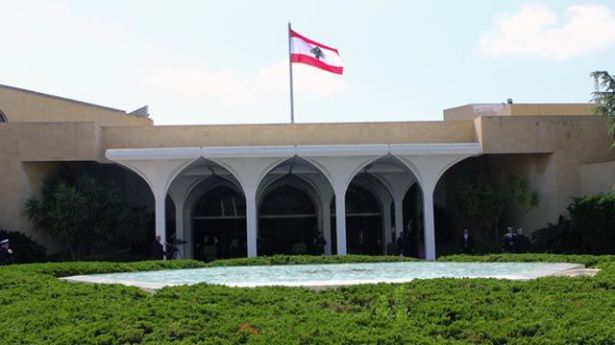Is the Lebanese presidency also held hostage?
Mohamed Chebarro/Al Arabiya/February 06/16
Lebanese people like explaining to foreigners that their country’s existence has defied every logic since its inception. Its pluralism and constitutional democracy is unique, its dysfunctional democracy is a case study in every political science curriculum, and its weak economy but strong banking sector has puzzled researchers. Moreover, Lebanon continues to exist with a fractured government, a paralyzed parliament and a vacant presidency for nearly two years.
The seat of the presidency has been held hostage to domestic and regional calculations of Hezbollah, the militia turned political party financed and armed by Iran. The party kept quiet when Christian and Muslim rivals recently agreed to nominate two of Hezbollah’s most trusted allies – General Michel Aoun and Suleiman Frangieh – for the position of the president. They had formed the 8th March pro-Syria and Iran coalition in Parliament with the help of Hezbollah.
Once again Hezbollah’s reaction demonstrated that the party’s calculations and interests lie far beyond the state of Lebanon and its borders. Hezbollah prefers the role of shadowy militia that directly or indirectly controls all the strings of the “fictitious” state of Lebanon rather than being accountable to its precarious yet sometime functioning democracy.
Lebanon continues to exist with a fractured government, a paralyzed parliament and a vacant presidency for nearly two years. The president’s office has been vacant, we were once told, because of the political differences between pro and anti-Syrian forces, and later because the Christian leadership failed to field a candidate. The Lebanese national covenant of 1946, agreed upon by its founders, stated that the top three posts in the country are to be distributed along religious and sectarian lines. So the president is Christian, the speaker is Shiite Muslim and the prime minister is Sunni Muslim.
Recently the anti-Syrian, anti-Iranian and anti-Hezbollah elements in Lebanon approved two Christian leaders as their candidates for the presidency. One of them is Suleiman Frangieh, a staunch ally of Syria’s embattled president Assad. The second is the previously anti Syrian ex-army General Michel Aoun. General Aoun spent years exiled in France. Once back in Lebanon after the assassination of former prime minister, Rafik Hariri, he allied himself and his movement to Hezbollah’s 8th March Movement.
In doing so, General Aoun managed to split the Lebanese Christian voices by embracing Hezbollah’s anti-Israeli doctrine. This gave the Shiite militia Hezbollah a Christian ally that legitimized the party’s agenda inspired by Iran’s Islamic revolution. The Tehran regime’s sole goal, it seems, has been to win back its influence in the region after the ouster of the Shah in 1979, and to spread a quasi-Islamic revolution that would ensure Iran is supreme and the main ‘hegemon’ in the Arab region.
A series of events suggests how Hezbollah managed to hold the presidency hostage – after holding the Lebanese people hostage to its adventures in Syria, Yemen, Iraq and beyond. These events demonstrate that national institutions in Lebanon are dead unless they are helpful in advancing the party’s agenda.
Hezbollah’s agenda
The first event was the Lebanese military tribunal’s decision to release Michel Samaha, ex minister and politician close to 8th March pro-Iran and Syria fronts. Samaha was found guilty of carrying in his car dozens of readymade bombs from Damascus to Lebanon. He admitted to hiring, at the request of Assad, a middleman tasked with planting bombs to assassinate Lebanese religious and political figures in order to stoke sectarian violence in the country. The court’s decision points to the death of justice in Lebanon and suggests that it is an organ that answers only to Hezbollah and its patrons.
The second example is the mysterious kidnapping of five Czech citizens who were reportedly holidaying in the land of the Cedars. Miraculously, after six months in detention, they were released. There was no word about the kidnappers or their condition. Czech Republic sent a plane to recover its freed citizens. Surprisingly a man, who was in custody in Prague and was due to be handed to the U.S., was released. The middleman was an arms dealer with alleged connections to Hezbollah. He was released from custody despite an arrest and extradition warrant issued against him by the U.S. government.
The stinking garbage issue as another example. The government surely has enough money in its coffers to build one or two incinerators to dispose the population refuse and ensure a semi-hygienic state after rubbish dumps reached maximum capacity around July last year. But even a small success as garbage disposal policy goes through Hezbollah and its political calculations. Hezbollah has the monopoly on success in Lebanon and the fractured political class must not even be seen to succeed on an issue as mundane as cleaning the streets.
The most recent example is former prime minister Saad Hariri and Samir Geagea trying to nominate candidates for presidency only to be vetoed by Hezbollah. According to me, Hariri and Geagea were trying to preserve the last of the disappearing Lebanese “state” by calling for the election of Hezbollah’s natural Christian allies, Frangieh and Aoun. Hezbollah leader Hassan Nasrallah’s speech, days after Geagea’s surprise nomination of his arch rival Aoun for president, exposed one basic truth – the presidency has also been held hostage.
Nasrallah spelled it out clearly when he said that the time has not come yet to elect a new president. He simply reiterated that the country, its people and what is left of the organs of the state, are hostage to precarious regional Iranian interests, and so is the seat of the presidency in Lebanon.



















